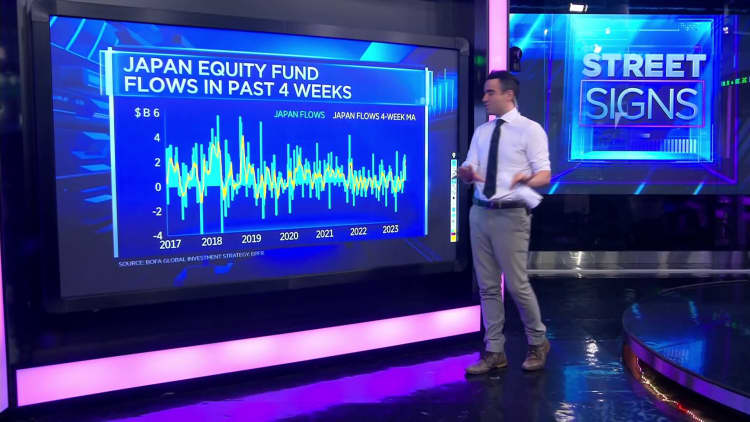[ad_1]

Japan launched a new stock index on Monday, making it easier for investors to identify corporate value in the equity markets, in a move to strengthen corporate governance reforms in the world’s third-largest economy.
The new JPX Prime 150 Index is a curated list of the 150 constituent listings on the Tokyo Exchange, which includes the likes of tech giants like Sony Group, Hitachi, Nintendo and Warren Buffet-backed trading houses Marubeni, Itochu and Mitsui & Co. The index excludes automakers such as Toyota Motor and Nissan Motor.
“Increasing the value of listed companies is essential for the expansion and revitalization of the market,” Takahiro Miura, Japan Exchange Group’s market innovation and research director of index business, told CNBC Monday.
The Prime 150 index constitutes about half of the Japan stock market and are of similar quality to the S&P 500, Miura said.
It means these companies have the same level of price-to-book ratios, return on equity and earnings-per-share growth rate, he said, adding that each company has a market capitalization of at least 1 trillion yen.
Japan launched a new Prime 150 stocks benchmark to help investors identify value in its next move to shore up corporate governance reforms in the world’s third-largest economy.
Kazuhiro Nogi | Afp | Getty Images
Miura said he expects index-based products — such as index futures and exchange-traded funds — that are based on the JPX Prime 150 index to be available by the end of this year.
Japanese stocks are among the world’s top outperformers year-to-date, with the benchmark Nikkei 225 up nearly 30% and the Topix touching its highest in more than three decades and gaining nearly 24%.
Investors have cheered the prospect of more corporate governance reforms that promise greater returns on their investment.
Starting this year, the Japan Exchange Group has pushed for companies to improve their capital efficiency.
The Tokyo bourse operator wants to ensure businesses achieve sustainable growth and increase corporate value over the mid- to long-term by focusing on the cost of capital and profitability based on the balance sheet, rather than just sales and profit levels on the income statement.
The reforms are part of a broader, multi-year structural overhaul that can trace their genesis to Abenomics — a set of economic policies that the late Prime Minister Shinzo Abe launched in the early 2010s. They were aimed at reviving economic growth and combating the chronic deflation that has plagued Japan since the 1990s.
[ad_2]

